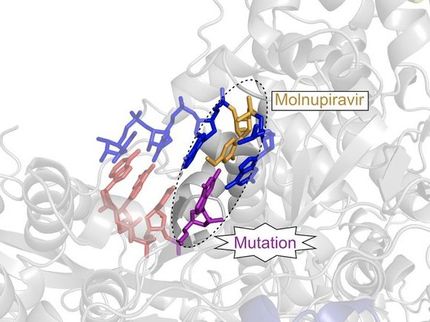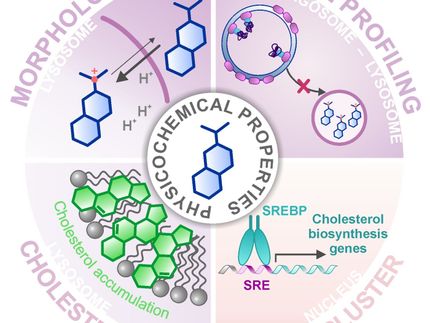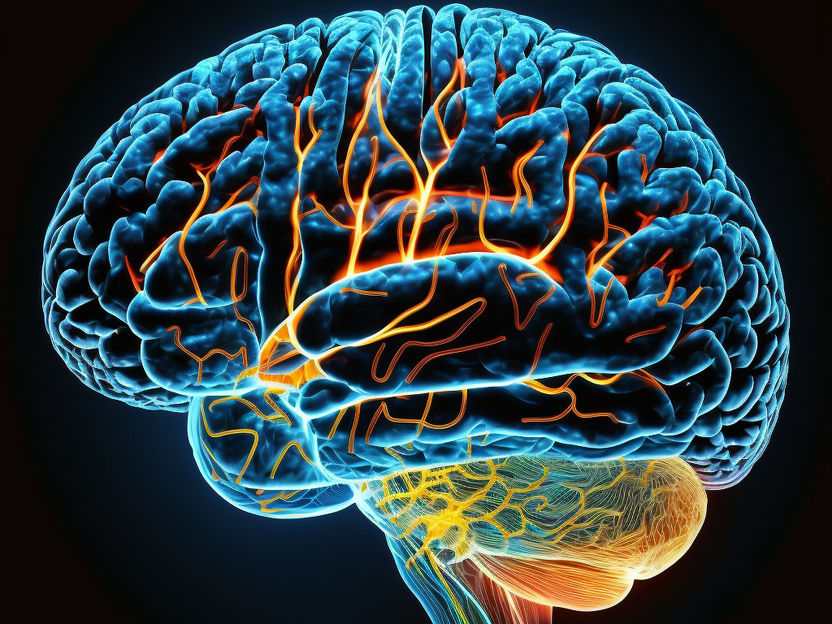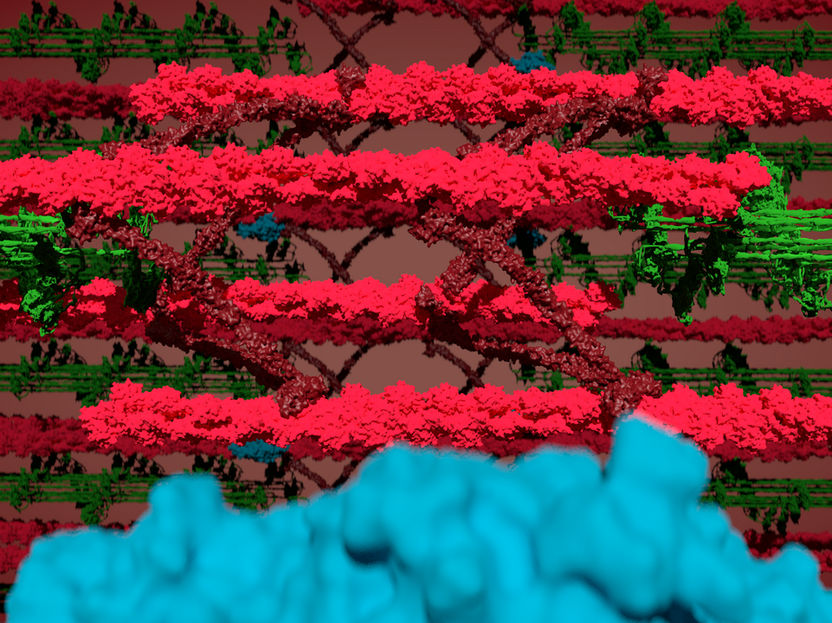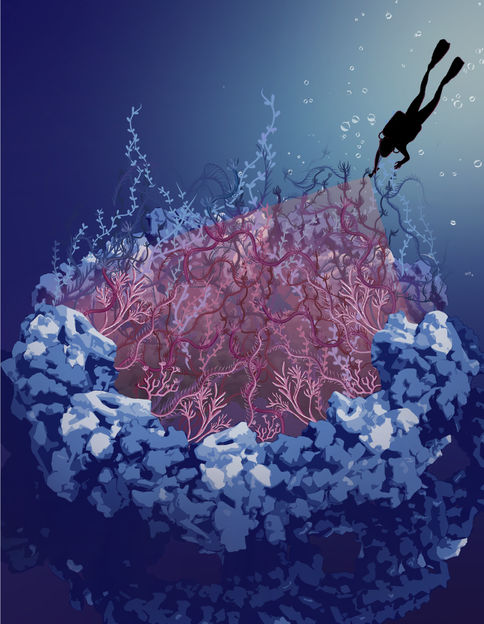Alzheimer therapy passes another important test
Drug candidate PRI-002 has successfully completed Phase I of clinical research
The Alzheimer drug candidate PRI-002 developed at Forschungszentrum Jülich has successfully completed Phase I of clinical research involving healthy volunteers. When administered daily over a period of four weeks, the active substance proved to be safe for use in humans. The next milestone will be the proof of efficacy in patients in clinical Phase II.
"In summer 2018, the drug candidate PRI-002 already proved its safety and tolerability profile in humans when administered as a single dose – up to the highest planned dosage. The drug concentrations in the blood reached the values that had previously been therapeutically effective in animal models. Now we were also able to demonstrate the safety of the compound after four weeks of daily administration," says Prof. Dieter Willbold, Director of Jülich’s Structural Biochemistry Institute (ICS-6) and of the Institute of Physical Biology at Heinrich Heine University Düsseldorf. The study was conducted by Prof. Michael Wolzt at the Department of Clinical Pharmacology of the Medical University of Vienna, in close coordination with Dr. Dagmar Jürgens of the ICS-6. Neuroscios GmbH, a contract research organization carried out the monitoring of both studies.
In recent years, many Alzheimer’s drug candidates have failed in the crucial clinical Phase III, in which the efficacy and safety of the drug are confirmed. They did not achieve any improvement in memory performance and cognition in Alzheimer’s patients. The amyloid beta protein (Abeta) was the focus of many of the failed drug candidates. "There is certainly a good reason for this, as there is clear genetic evidence that Abeta plays a decisive role in the development of Alzheimer’s dementia," says Dieter Willbold. Either research attempted e to reduce the formation of Abeta monomers from its precursor protein APP by inhibiting the cleaving enzymes involved, or monoclonal antibodies were used with the assumption that they would induce degradation of various forms of Abeta.
The amyloid beta monomer is a naturally occurring protein in the body that is produced throughout life from the amyloid precursor protein, APP. These Abeta monomers are non-toxic and very rarely aggregate into an Abeta oligomer under normal conditions, as several Abeta monomers have to assemble in the same place at the same time, making this a very rare event. However, even rare events become more probable the longer the waiting period is. This is the reason why age is the most important risk factor for Alzheimer’s disease. When the first Abeta oligomers have formed, they can multiply themselves and, unlike the monomers, they are highly toxic. They also impair the normal function of the nerve cells in the brain. In contrast to the much larger fibrils in the plaque deposits between the nerve cells, oligomers are highly mobile and cause damage anywhere in the brain.
"We considered a different approach for our drug candidate, because the principle that it is not a question of the formation of Abeta itself but of its aggregation into oligomers, has been known for several years," says Dr. Antje Willuweit from the Institute of Neuroscience and Medicine (INM-4), who has accompanied Dieter Willbold’s research for many years.
The mechanism of action of PRI-002 follows a completely different approach than the previous drug candidates. It directly destroys the toxic oligomers without the involvement of the immune system, disassembling them into the harmless Abeta monomers.
In addition, PRI-002 belongs to a completely new drug substance class, the so-called D-peptides . These consist of the exact mirror images of the L-amino acid residues normally found in proteins of organisms and are therefore not at all or very slowly degraded in the body. As a result, PRI-002 is stable enough to be administered orally, i.e. as a tablet or capsule.
"I have been watching the development of PRI-002 with great interest. Not only because it represents an interesting and new approach in the therapy of Alzheimer’s disease, but also because it can be administered in tablet or capsule form, which is particularly advantageous for elderly people," says Prof. Oliver Peters from the Charité in Berlin.
The results of the preclinical efficacy tests with PRI-002 were also usually obtained with oral administration. "We were able to show that mice with symptoms similar to Alzheimer’s had an improvement in cognitive performance after treatment with PRI-002. The memory and cognition of the treated mice were significantly improved compared to the placebo group and could even no longer be distinguished from the memory performance of healthy mice," says Dr. Janine Kutzsche, scientist from Prof. Willbold’s team. These recently published studies in very old mice with fully developed pathology and cognition deficits, carried out at ICS-6, showed that the memory and cognition deficits were successfully improved even in these old animals. "Clearly under non-preventive conditions," emphasises Dieter Willbold.
The results from the successful tests of single and multiple ascending dosages of PRI-002 in healthy, voluntarily participating humans allow a further development of the drug candidate. "Our next goal is the proof of efficacy in patients," says Dieter Willbold. "We hope to successfully take this path with the company Priavoid."
Priavoid is a spin-off of scientists from Forschungszentrum Jülich and Heinrich Heine University Düsseldorf which also has the know-how to develop other drug candidates for neurological diseases. The development of PRI-002 has so far been financially supported by the Helmholtz Validation Fund. The study that was completed now has received additional support through the "Part the Cloud: Translational Research Funding award" of the US-based "Alzheimer's Association" (PTC-19-605853).
"Priavoid is a very innovative company and I am happy to be a part of its further development," says Prof. Detlev Riesner, a leading scientist in prion research who recently acquired shares of Priavoid.
